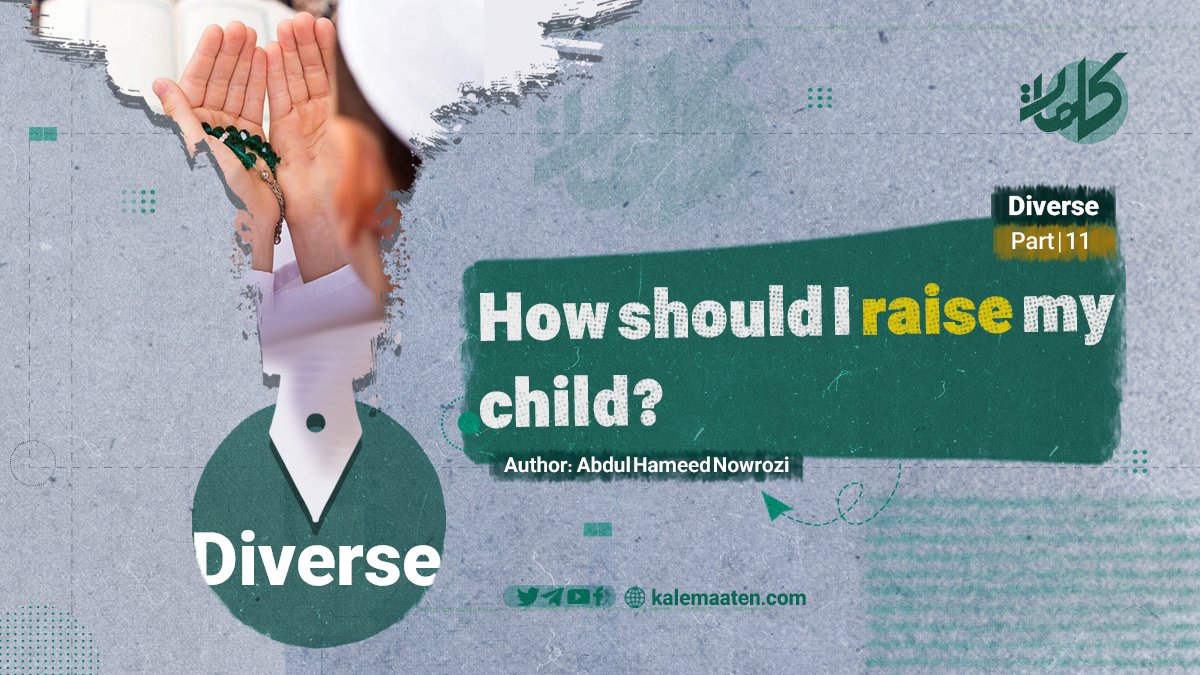
Author: Abdul Hameed Nowrozi
How Should I Raise My Child (Part 11)
Important Points Related to Raising Children
Dear Parents:
Some beliefs in the realm of child-rearing can be very destructive and lead to problems in the relationship between parents and children. Here, we outline some of these detrimental beliefs:
1. Misinterpretation of Behaviors: Some parents believe that their child’s inappropriate behavior is merely an attempt to annoy them. This mindset leads to blaming the child and can provoke intense anger in the parents.
2. Delayed Response to Behaviors: Parents may consider some of their child’s inappropriate behaviors as temporary and fleeting. They often attempt to modify the behavior only after it has escalated into a severe and long-term issue, making it much harder to control.
3. Self-Blame: Parents might think, “All these problems are because of me” whenever their child exhibits wrong behavior. This self-blame can lead to feelings of guilt, depression, and anxiety, which in turn reduce their tolerance and intensify their reactions.
4. Unrealistic Expectations: Many parents hold unrealistic expectations of their children that do not align with their developmental stages. They may mistakenly view children as small adults with the same capabilities. For example, expecting a two-year-old to eat neatly with a spoon and fork, or believing that a child under six can manage hours of walking and shopping, or sit quietly for long durations at a party, are all inconsistent with a child’s developmental level.
5. Desire for Perfection: Some parents set excessively high standards for their children, wanting them to be perfect. Consequently, they may become irritated and angry upon observing behaviors that are appropriate for their child’s age.
Prevention of Child Theft
Theft occurs when a person takes another’s property without permission and considers it their own. Children typically start to grasp the concept of ownership around the age of four or five. Thus, a child who does not yet understand ownership and cannot distinguish between their property and others’ property may take something, believing it is theirs. This action should not be viewed as theft.
Causes of Theft
1. Material Needs:
– Deprivation of favorite foods
– Desire for possession among children
– Hunger and lack of food, clothing, and toys
– Need for engaging toys and shiny objects
2. Emotional Causes:
– Lack of love and affection, leading to anxiety
– Compensating for feelings of jealousy or inadequacy
– Acting out against parents or others for various reasons
– Seeking materials for others’ consumption
– The desire to show off
3. Psychological Causes:
– Feeling lonely within the family structure and wishing to break out of that loneliness through attention-seeking behavior
– Hurting others to alleviate personal complexes
– Relieving mental anxiety related to psychological disorders
– A desire to possess shiny or attractive objects
Continues…


